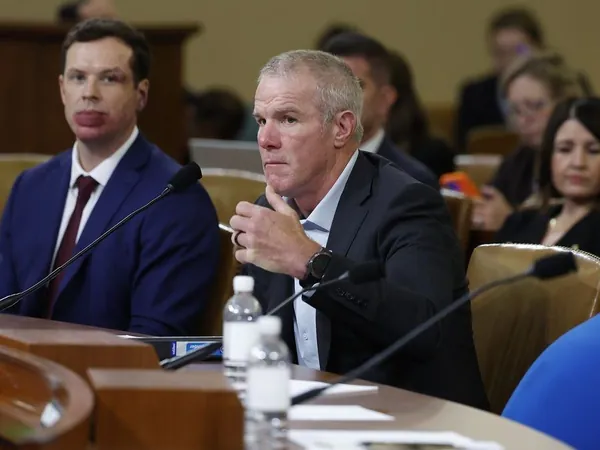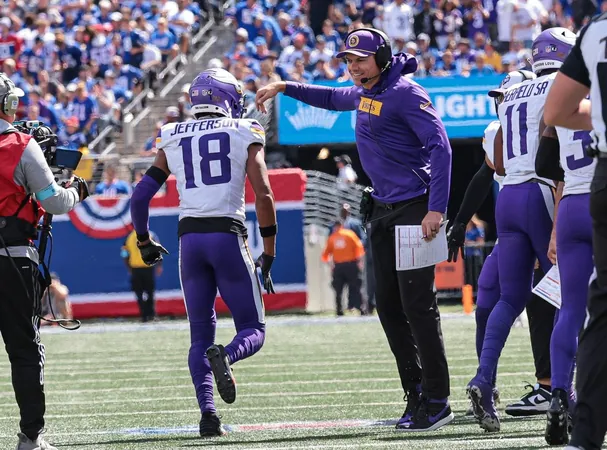
The Hidden Dangers of Concussions: Why Some Athletes Suffer Neurodegeneration While Others Thrive
2024-10-05
In a groundbreaking move to advance research on brain injuries, Ontario’s Minister of Sport, 71-year-old Neil Lumsden, has pledged to donate his brain to the Concussion Legacy Foundation Canada. Having enjoyed a successful decade-long career in the Canadian Football League, winning four Grey Cups, Lumsden reflects on his history of sustaining head injuries, stating that while he has had his "bell rung" multiple times, he does not believe he suffers from long-term neurological damage. His commitment to aiding scientific understanding stems from a desire to explore why his brain seems to be more resilient compared to some of his teammates, who have faced devastating consequences.
In a juxtaposition of experiences, 54-year-old NFL Hall of Famer Brett Favre disclosed during congressional testimony that he has been diagnosed with Parkinson’s disease, a condition possibly linked to the countless concussions he endured throughout his illustrious career. This stark contrast raises a crucial question: what accounts for the disparate outcomes of these two athletes?
Unraveling the Mysteries of Concussions
While we do possess tools to evaluate and manage concussions in their acute phase, the mystery expands when considering long-term brain health. Concussions often elude detection on standard MRI or CT scans, leading to their characterization as “mild” traumatic brain injuries (mTBIs). Current imaging technology typically only serves to rule out severe head injuries, but does little to assess the long-term biological ramifications.
Research indicates that repeated subconcussive impacts can cause significant changes in brain structure and function, even in the absence of diagnosed concussions. Studies utilizing advanced imaging techniques like resting-state functional MRI, which monitors brain communication, and diffusion tensor imaging, which assesses the integrity of neural connections, reveal that these changes can be present in athletes of all ages and genders.
Although many individuals in these studies may ultimately avoid neurodegenerative disorders, we still lack clarity about why certain athletes, like Favre, succumb to debilitating conditions while others, like Lumsden, live comparatively healthy lives.
The Neurodegenerative Pathway
Scientific studies—both human and animal—have identified critical biological consequences of head impacts that may facilitate the development of neurodegenerative diseases. Chronic inflammation is known to play a significant role in disorders such as Alzheimer’s and Parkinson’s, where gradual neuron deterioration occurs.
Moreover, tau protein tangles—hallmarks of Chronic Traumatic Encephalopathy (CTE)—can disrupt normal neuron function and manifest in symptoms such as memory loss, impaired judgment, and, eventually, dementia. Alarmingly, CTE can be present even in individuals who have never received a formal concussion diagnosis, underscoring the hidden dangers associated with head trauma.
Recent surveys reveal that nearly one-third of retired NFL players believe they experience symptoms consistent with CTE, with about 10% diagnosed with Alzheimer's or other forms of dementia. This alarming trend speaks volumes about the potential long-term effects of repeated head impacts.
The Role of Genetics and Cognitive Reserve
The complexity of neurodegenerative outcomes is further complicated by genetic factors. Research suggests that individuals carrying genes like APOE4 or alpha-synuclein Rep 1 may be more vulnerable to Alzheimer’s or Parkinson’s disease post-injury. However, conclusions are not uniform, and further investigation is necessary.
Cognitive reserve—a concept referring to the brain’s ability to maintain cognitive functions despite injury or disease—also plays a significant role in resilience. Factors influencing cognitive reserve include genetics, educational background, social connections, and overall health. This adaptability allows some athletes' brains to reroute information effectively, akin to detours in traffic, and is measurable through functional MRI.
Implications for Athletes Today
Despite the nickname "mild injury", concussions can have lifelong ramifications, particularly when they occur in succession. Understanding these implications is crucial for athletes, coaches, and medical professionals alike, as the quest for answers continues. As the spotlight on brain health in sports intensifies, it is imperative that ongoing research unravels the mysteries of neurodegeneration linked to concussion injuries, paving the way for preventive measures and improved outcomes for future generations of athletes.
This investigation into the nuances of brain injury underscores a sobering truth: what may seem mild can carry lifetime consequences, and the game of life is not always fair when it comes to neurodegenerative disease.









 Brasil (PT)
Brasil (PT)
 Canada (EN)
Canada (EN)
 Chile (ES)
Chile (ES)
 España (ES)
España (ES)
 France (FR)
France (FR)
 Hong Kong (EN)
Hong Kong (EN)
 Italia (IT)
Italia (IT)
 日本 (JA)
日本 (JA)
 Magyarország (HU)
Magyarország (HU)
 Norge (NO)
Norge (NO)
 Polska (PL)
Polska (PL)
 Schweiz (DE)
Schweiz (DE)
 Singapore (EN)
Singapore (EN)
 Sverige (SV)
Sverige (SV)
 Suomi (FI)
Suomi (FI)
 Türkiye (TR)
Türkiye (TR)